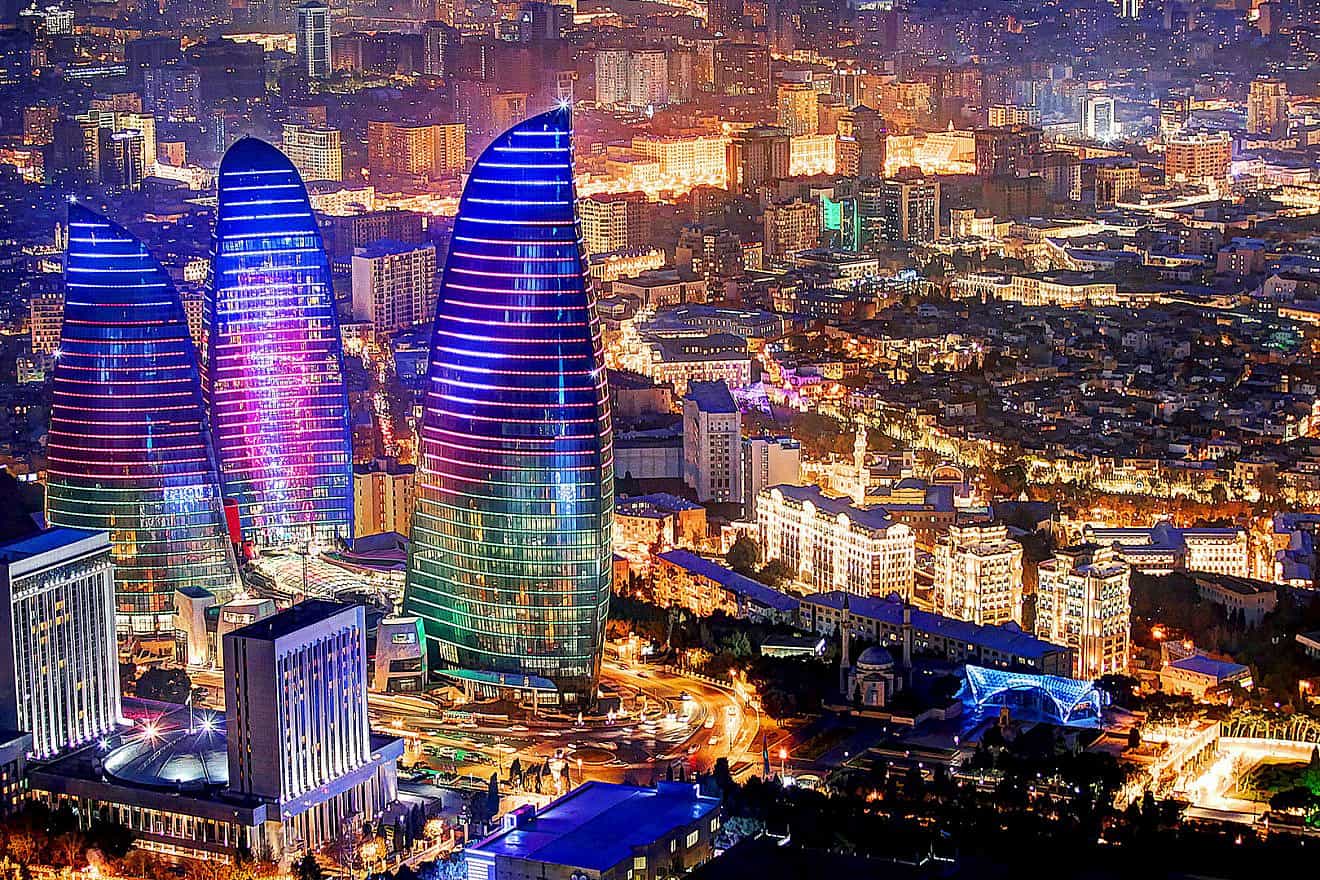As it rebuilds Karabakh, Azerbaijan eyes Israeli investment The Jewish News Syndicate
The Jewish News Syndicate website published an article by Etgar Lefkovitz on Azerbaijani-Israeli cooperation and the restoration of Karabakh. Caliber.Az reprints the article.
Israel is among Azerbaijan’s top 10 trading partners, with trade between the two countries reaching $1.7 billion last year, according to figures from the Azerbaijani Economy Ministry.
The ever-growing commercial ties come amid burgeoning relations between the Jewish state and the predominantly Shi’ite secular Muslim nation, that have developed from a centuries-long affinity into an unprecedented strategic partnership.
The trade figures for last year, the majority of which come from the oil sector, represent an 85 per cent increase in trade turnover compared to 2021, according to ministry officials.
For Israel, ties with Azerbaijan—which shares a 428-mile border with Iran, a country home to tens of millions of Azerbaijanis—are of strategic importance, both as a conduit for reconnaissance and because it supplies an estimated 30 per cent of the Jewish state’s oil. At the same time, Azerbaijan is a leading purchaser of Israeli military hardware, which helped Baku win its 2020 war with archrival Armenia.

View of Baku, the capital of the Republic of Azerbaijan at night
More than 90 Israeli companies are currently operating in Azerbaijan, including in the agriculture and economic industries, with their investment totalling $30 million, according to the ministry.
“Our priority is to promote [trade in] the non-oil sector as part of an economic diversification plan,” said Guntakin Mirzayeva, head of the ministry’s Division of Intergovernmental Commissions and Bilateral Documents, in an interview with JNS.
Azerbaijan is especially interested in Israeli know-how in hi-tech, green energy and agriculture, officials said.
Rebuilding Karabakh
About a dozen Israeli companies have also expressed interest in undertaking projects in the mountainous Karabakh region, which Azerbaijan won back from Armenia in the war, although agreements are still pending Azerbaijani approval, according to the ministry official.
The vast construction work underway in the region—which requires a special permit to enter—is currently being carried out by Azerbaijan and its historical ally Turkey.

A panoramic view of the mountainous region of Karabakh, Azerbaijan
The Azerbaijani government has allocated over $2 billion from the state budget for reconstruction in the area, which is slowly being demined and repopulated after more than three decades of conflict, the ministry official said. Two airports have already been constructed in the region over the last two years, although they are currently not in service. Construction cranes and bulldozers—as well as multiple police checkpoints—are omnipresent in the region.
Decades of conflict and lingering tensions
Karabakh and seven surrounding districts, which are a six-hour drive from the capital Baku and snake around the border with Iran and Armenia on still unpaved roads, was the venue of three decades of conflict between the two former Soviet Republics, which have fought two wars since the end of Soviet rule. Three years after the 2020 war ended, a small mountain road that is the only route from Armenia to the territory remains the most immediate flashpoint of the unresolved conflict.
An Azerbaijani checkpoint on the route, which Baku set up this spring, citing security considerations, has impeded food supplies to the region and aggravated still-simmering tensions between the archrivals, drawing international condemnation. On-and-off European-, Russian- and American-brokered talks aim to resolve the latest dispute—whose underpinnings are based on the decades of mistrust, bitterness and rivalry.
Demining and rebuilding
In the meantime, Azerbaijani officials are busy at work in the area, removing the estimated one million mines left in the area from the three decades when Armenia held the territory. Only about 20 per cent of the mines have been removed to date, with officials estimating that it will take decades to remove them all.
“The biggest obstacle for us is the demining,” said Mirzayeva.
According to Azerbaijani officials, approximately 2,000 landmines are being uncovered per square mile.

An Azerbaijani official holding a landmine found in Karabakh
Once each area is cleared, building is permitted in the area. While only 1,000 Azerbaijanis are now back in the region—which was once home to hundreds of thousands of people—the government plans to repopulate it with some 140,000 in the next three years, including many whose families once lived there three decades ago, officials said. Tens of thousands of Armenians live in the area as well. In all, about 10 million people live in Azerbaijan.
Cooperation broadening
Israel’s Ambassador to Azerbaijan George Deek told JNS that cooperation between the two countries, once limited to the energy and defence sectors, is vastly broadening to economic and agricultural fields amid the flourishing ties, including what is expected to be the first Israeli desalination plant on the shorelines of the Caspian Sea, near Baku, which would be the second such plant in the country.
“We are certainly very willing and interested to further the presence of Israeli companies in Azerbaijan, and we are in constant dialogue with local officials to advance such cooperation,” said Deek.








